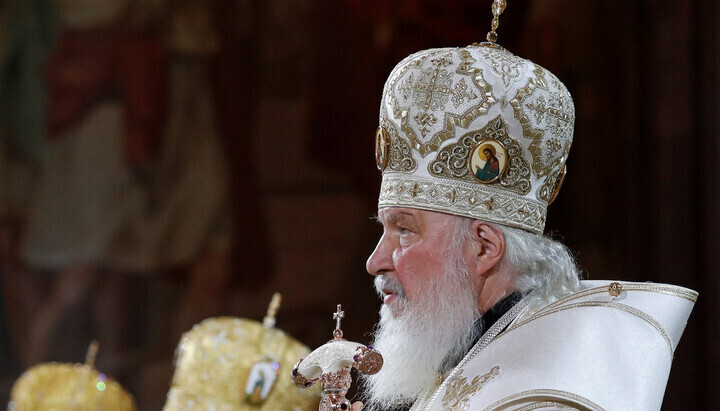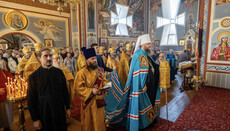Epiphany complains: UOC communities sue when “transferred” to OCU

All the “transfers” to the OCU comply with Ukrainian law, but “practically on every community, there is a lawsuit from the Russian Church,” said Epiphany Dumenko.
The UOC filed lawsuits in order to hinder the process of the transfer of religious communities “from the Russian Church” to the Ukrainian Orthodox Church in any way, said the head of the newly formed church structure Epiphany Dumenko during a press conference on the occasion of the first anniversary of his "enthronization", reports Ukrinform.
Dumenko stated that now the “transfers” to the OCU are not as active as they were right after the bestowal of the Tomos.
“This is due to some political aspects to some extent, now, unfortunately, some regional administrations are blocking re-registration, the Moscow Patriarchate is trying in every possible way to suspend this process through lawsuits,” he said. “That is, there is now a corresponding lawsuit from the Russian Orthodox Church on almost every community that has joined our Church.”
At the same time, he added that the UOC “scare people, create artificial conflicts, make a picture so that later it can be replicated not only in Ukraine but also abroad”, while the communities that joined the OCU did this, according to him, according to the Constitution of Ukraine and Ukrainian legislation.
Epiphany also explained why he persistently calls the Ukrainian Orthodox Church the “Russian Church”.
“Because the Ukrainian Orthodox Church of the Moscow Patriarchate must, by law, re-register into the Russian Orthodox Church. And this is not surprising. If you want to have Moscow as your religious centre, why don't you call a spade a spade? Please call yourself the Russian Orthodox Church and do not mislead Orthodox Ukrainians!” said the head of the schismatic structure.
As the UOJ reported, the head of the UOC Information and Education Department, Metropolitan Clement (Vecheria) of Nezhin and Priluky, commented on the situation with the failure to comply with the orders of the courts adopted in favour of the canonical Church.





